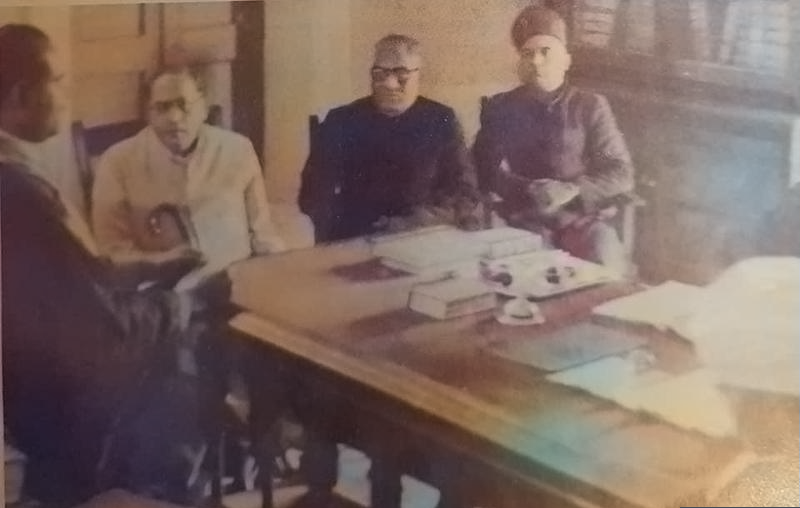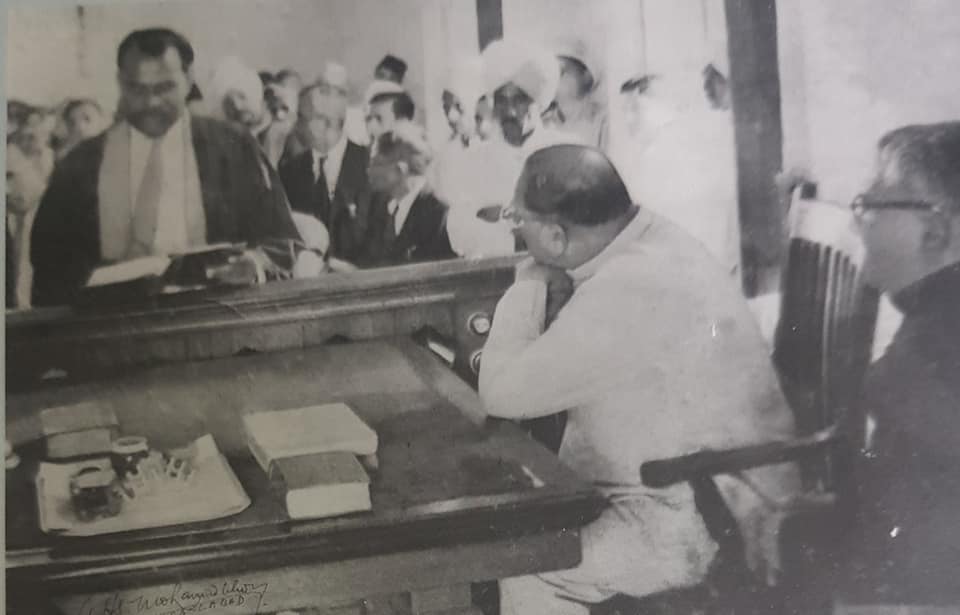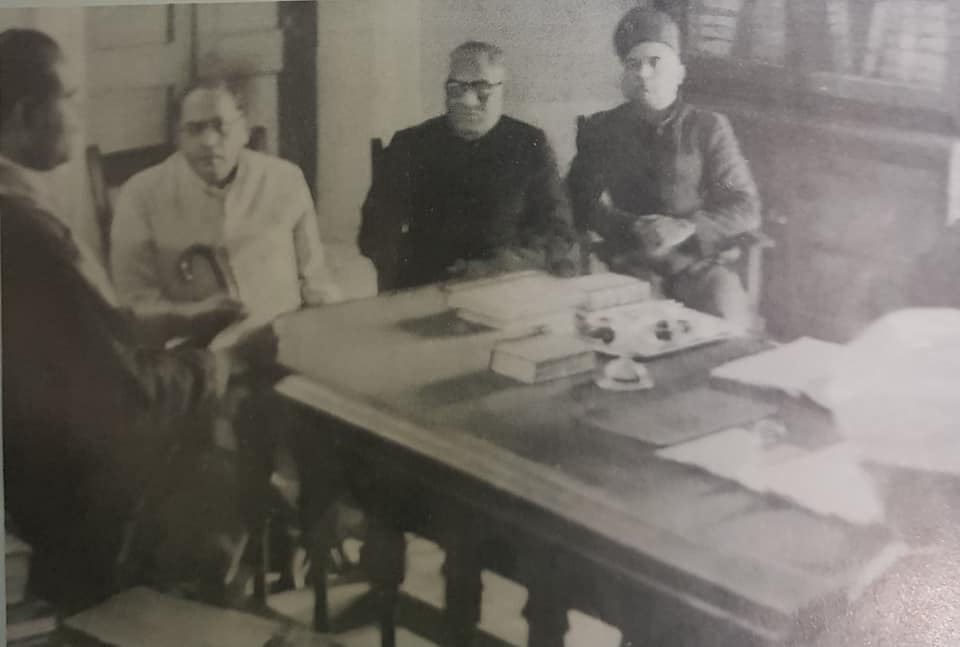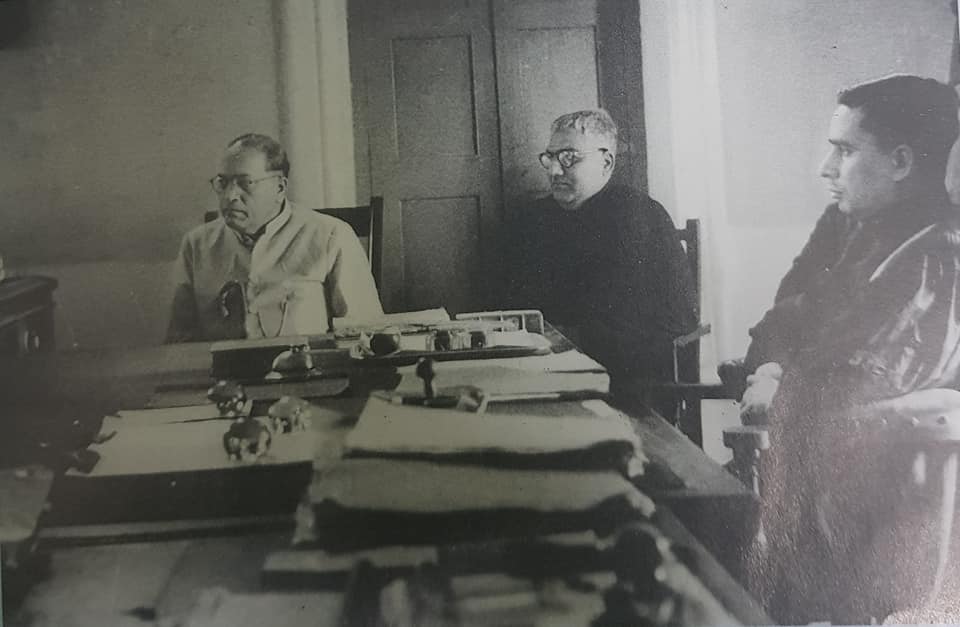
Dr. B. R. Ambedkar, Barrister-at-Law
Vijay B. Gaikwad compiled two volumes of Court Cases argued by Dr. Babasaheb Ambedkar. We know Babasaheb Ambedkar as the genius who drafted the constitution of India. He was the constitutional lawyer par excellence. Drafting the provisions of the constitution needed special acumen and his depth, range, and holdover law is reflected in the arguments in the constituent assembly. It was the pinnacle of his legal talent. The cases Babasaheb argued from 1925 to 1956 for 31 Years are catalogued but we do not get the details of the arguments made by Babasaheb Ambedkar.

Undoubtedly, Babasaheb Ambedkar loved law and earned his bread and butter by practising it. Master of details and analysis he was, law for him was not an exercise in arguments but was also a quest for justice. Despite the fact that he was so busy in public life, he developed his practice to a successful level. He fought the civil cases, criminal cases, libel cases, and dabbled in all forms of legal matters.
He underlined the qualities of law students:
1. lawyer should possess a correct understanding of the fundamental principles
2. Grounding in general knowledge
3. The art of orderly presentation of the subject
4. Precision in stating facts
5. Ability to express oneself in clear language
6. Relevancy of answers given to questions asked
The list is remarkable as it can also be applied to any discipline.
For him, the power of persuasion and hence arguments were the important aspects of the legal profession.
The essential requirements for the development of the argumentative ability are:
1. Knowledge of the individual and how they function in society
2. A knowledge of the working of the human mind
3. A mind trained to draw logical inferences
A brilliant lawyer he was, his method to think logically and with legal terms will be important for us to understand. Unfortunately for us, his drafting is not available except in the case of Mahad. But fortunately for us, a fragment of his legal and logical thought process is available in which Babasaheb Ambedkar was fighting a murder case in 1952. One person was assassinated by 14 people. I would only stipulate the highlights of his style of legal thinking.
First, he enumerates the details of the plots of assassinations and he dates them with details of the attempts made.
Second, he gives the composition of the assailants with their places.
Third, he tries to establish the motive for the murder
Fourth, he dissects approvers evidence and claims it as unreliable.
Fifth, he concludes based on the evidence
Sixth, he questions the identification of the assailants
Seventh, he examines the things found from the two accused
Eighth, he examines the confessions of the other accused…
Finally, he frames a legal question.
Are they confessions?
And gives an answer by raising another question:
Can they be said to be self-incriminating statements?
In this case, the Judge had only considered the questions of whether confessions could be used against other accused.
So, the question to be considered by the judge was: Are they confessions or self-incriminating statements?
Well, let the contemporary lawyers break their heads over it, we will shift our attention to a case filed against the Election Commission of India by Dr. Babasaheb Ambedkar accusing that the elections aren’t free and fair in India.
Can our contemporary Ambedkarite Lawyers take up this challenge in the light of irresponsible Election commission of India?
Author – Mangesh Dahiwale, Human Rights Activist







डॉ.बाबासाहेब आंबेडकर यांचे अनेक पैलू भारतातील जनतेसमोर आलेले नाहीत आपण ते काम करित आहात त्याबद्दल मनःपूर्वक धन्यवाद.
I read all this what you uploaded and like it this
Its huge information about br .ambedkar to show the real ambedkar to india plz reach as much as people who loves ambedkar Thank you.and plz forward the ambedkar speeches and writing to this mail.
Both English and Marathi
Thank you for the comment.
You can download all the books from here http://velivada.com/dr-b-r-ambedkar-books-2/
Jai Bhim!